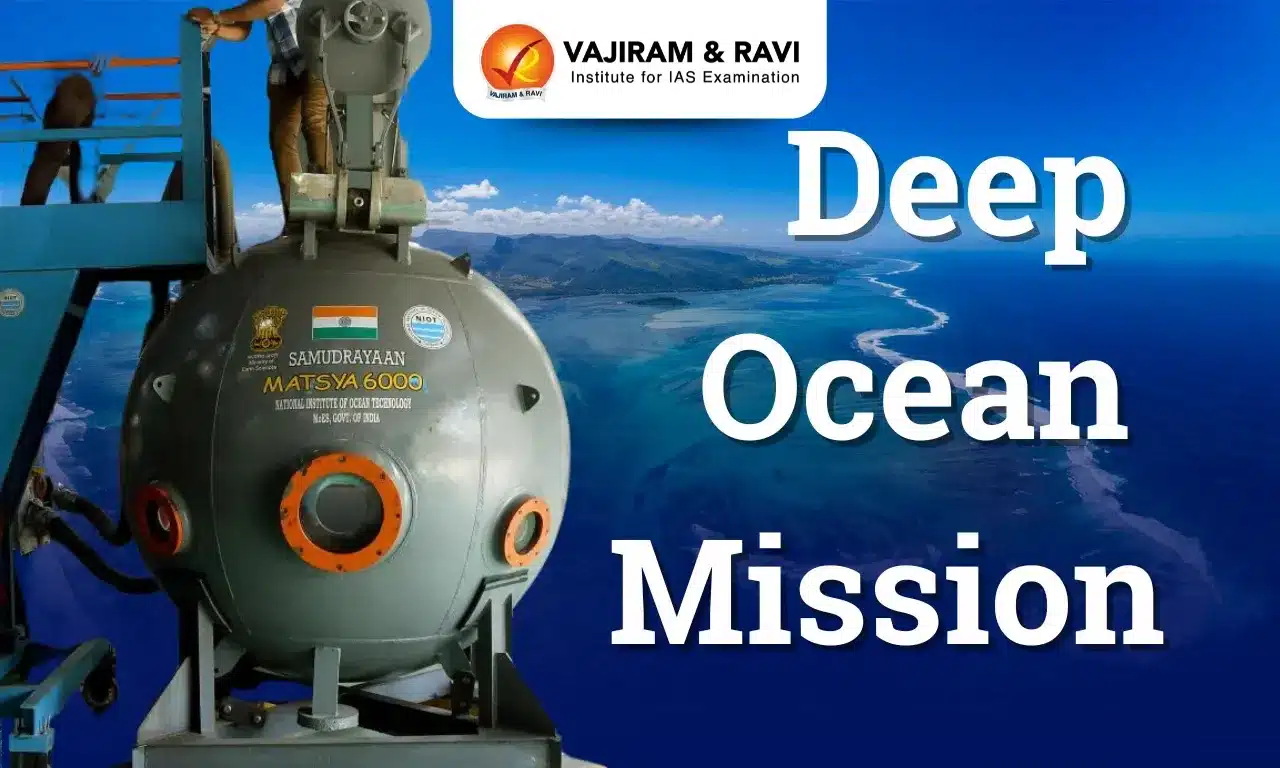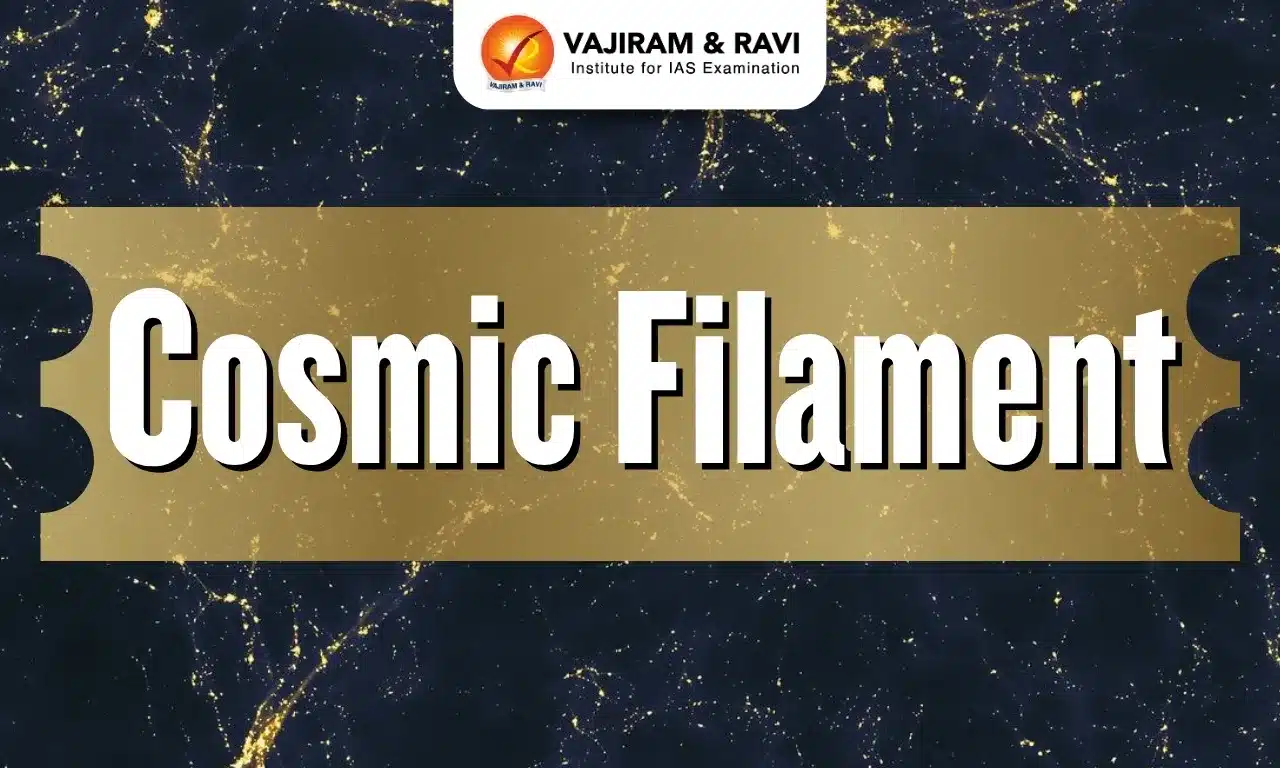About Deep Ocean Mission
- It is a mission-mode project to support the Blue Economy Initiatives of the Government of India.
- It is a high-level multi-ministerial, multidisciplinary programme for a better understanding of the deep sea living and non-living resources of the Indian Ocean.
- It was launched as a Central Sector Scheme with the overall estimated cost of Rs 4,077 crores for two phases of the Mission period during 2021-2026.
- The Ministry of Earth Sciences (MoES) will be the nodal Ministry implementing this multi-institutional Mission.
- The mission consists of six major components:
- Development of Technologies for Deep Sea Mining and Manned Submersible and Underwater Robotics;
- Development of Ocean Climate Change Advisory Services;
- Technological innovations for exploration and conservation of deep-sea biodiversity;
- Deep Ocean Survey and Exploration;
- Energy and freshwater from the Ocean;
- Advanced Marine Station for Ocean Biology
- The Samudrayaan project under the Deep Ocean Mission is for the development of a manned submersible to carry three people to a depth of 6000 meters in the ocean with a suite of scientific sensors for ocean exploration and observation.
- The vehicle is called Matsya 6000.
- The entire vehicle design has been completed and various sub-components like underwater battery, propulsion system, underwater telephone, navigation and communication devices, power distribution and control systems, personnel sphere for 500 m water depth, lift support system, control software, etc have been realised.
Deep Ocean Mission FAQs
Q1. Who launched the Deep Ocean Mission?
Ans. The Deep Ocean Mission was launched by the Government of India, specifically
by the Ministry of Earth Sciences (MoES).
Q2. What is the purpose of the Deep Ocean Mission?
Ans. To develop technologies to harness the living and non-living resources from the deep-oceans.
Q3. Who owns the deep ocean?
Ans. According to the United Nations Convention on the Law of the Sea (UNCLOS), the deep ocean beyond national jurisdiction is considered a common heritage of mankind.
Q4. What is the depth of the deepest ocean?
Ans. The deepest part of the ocean is called the Challenger Deep, approximately 10,935 meters (35,876 feet) deep, and is located beneath the western Pacific Ocean in the southern end of the Mariana Trench.
Source: BS
Last updated on November, 2025
→ Check out the latest UPSC Syllabus 2026 here.
→ Join Vajiram & Ravi’s Interview Guidance Programme for expert help to crack your final UPSC stage.
→ UPSC Mains Result 2025 is now out.
→ UPSC Notification 2026 is scheduled to be released on January 14, 2026.
→ UPSC Calendar 2026 is released on 15th May, 2025.
→ The UPSC Vacancy 2025 were released 1129, out of which 979 were for UPSC CSE and remaining 150 are for UPSC IFoS.
→ UPSC Prelims 2026 will be conducted on 24th May, 2026 & UPSC Mains 2026 will be conducted on 21st August 2026.
→ The UPSC Selection Process is of 3 stages-Prelims, Mains and Interview.
→ UPSC Result 2024 is released with latest UPSC Marksheet 2024. Check Now!
→ UPSC Prelims Result 2025 is out now for the CSE held on 25 May 2025.
→ UPSC Toppers List 2024 is released now. Shakti Dubey is UPSC AIR 1 2024 Topper.
→ UPSC Prelims Question Paper 2025 and Unofficial Prelims Answer Key 2025 are available now.
→ UPSC Mains Question Paper 2025 is out for Essay, GS 1, 2, 3 & GS 4.
→ UPSC Mains Indian Language Question Paper 2025 is now out.
→ UPSC Mains Optional Question Paper 2025 is now out.
→ Also check Best IAS Coaching in Delhi

















